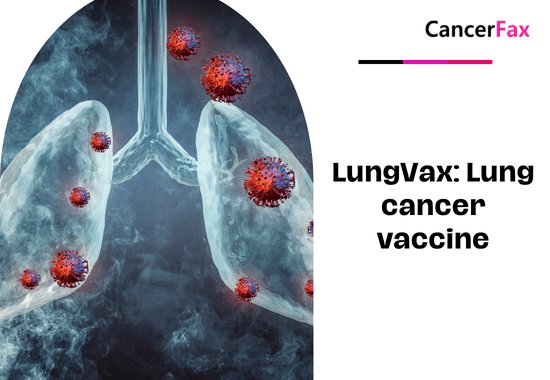Lung cancer vaccine
The ‘LungVax’ vaccine, developed by researchers from the University of Oxford, the Francis Crick Institute, and University College London, employs technology akin to that of the very effective Oxford/AstraZeneca COVID-19 vaccine.
The researchers will get funding for the study over the following two years to facilitate laboratory research and the preliminary production of 3,000 doses of the vaccine at the Oxford Clinical BioManufacturing Facility.
Lung cancer cells exhibit distinct characteristics compared to normal cells due to the presence of “red flag” proteins known as neoantigens. Neoantigens manifest on the cell surface due to oncogenic changes in the cell’s DNA.
The LungVax vaccine will contain a DNA strand that instructs the immune system to identify neoantigens on atypical lung cells. The LungVax vaccination will subsequently stimulate the immune system to eliminate these cells and halt lung cancer.
In this work, the researchers are manufacturing this vaccine in the laboratory to demonstrate its efficacy in eliciting an immunological response. Upon the successful completion of this work, the vaccine will proceed directly to a clinical trial. Should the forthcoming early trial yield favorable outcomes, the vaccine may then be expanded to larger studies involving individuals at elevated risk of lung cancer. This may encompass individuals aged 55-74 who are current or former smokers who presently meet the criteria for specialized lung health assessments in some regions of the UK.
Approximately 48,500 lung cancer cases occur annually in the UK. Seventy-two percent of lung cancers are attributable to smoking, the foremost avoidable cause of cancer globally.
Professor Tim Elliott, the Kidani Professor of Immuno-oncology at the University of Oxford and research director for the LungVax project, stated: ‘Cancer is a disease originating from our own bodies, making it challenging for the immune system to differentiate between normal cells and cancerous ones.’ Facilitating the immune system’s recognition and assault on cancer represents a significant challenge in contemporary cancer research.
This research may yield a readily available vaccine utilizing Oxford’s vaccine technology, which showed efficacy during the COVID-19 pandemic. Should we duplicate the success observed in pandemic trials, we might potentially save the lives of tens of thousands annually in the UK alone.
Professor Sarah Blagden, a Professor of Experimental Oncology at the University of Oxford and inventor of the LungVax project, stated: ‘Anti-cancer medicines are more likely to succeed when administered to individuals with cancer in its first stages.’
We are formulating a vaccine to prevent the onset of lung cancer in individuals at elevated risk. This is a significant advancement in the prevention of this catastrophic disease.
Professor Mariam Jamal-Hanjani of University College London and the Francis Crick Institute, who will oversee the LungVax clinical trial, stated: ‘Fewer than 10% of individuals with lung cancer live for a decade or longer.’ That must be altered. This research enhances current initiatives by implementing lung health assessments to facilitate earlier detection of lung cancer in high-risk individuals.
We estimate that the vaccine may address approximately 90% of all lung malignancies, according to our computational models and prior studies, and this money will enable us to initiate essential preliminary trials in humans.
LungVax will not supplant smoking cessation as the most effective method to diminish your danger of lung cancer. However, it may provide a feasible pathway to avert the onset of certain early-stage malignancies.
Michelle Mitchell, Chief Executive of Cancer Research UK, stated: ‘The scientific advancements that effectively navigated the world through the pandemic may soon lead us to a future where individuals can enjoy longer, improved lives devoid of the apprehension of cancer.’
Initiatives such as LungVax represent a significant advancement towards a promising future in which cancer is considerably more prevented. We are experiencing a golden era of science, and this is one of numerous initiatives we anticipate will enhance lung cancer survival rates.
Lola Manterola, President of the CRIS Cancer Foundation, stated: ‘We are at a pivotal juncture in the history of cancer research and therapy.’ For the first time, advancements in technology and understanding of the immune system are enabling us to initiate preventive measures against cancer.
This pioneering work signifies a definitive advancement in that direction, and we at CRIS deem it imperative to endorse it.






Cancer vaccine breakthrough, Early-stage lung cancer treatment, Lung cancer immunotherapy, Lung cancer vaccine, LungVax vaccine, NSCLC prevention, Oxford University lung cancer research, Preventive cancer vaccine
CancerFax is the most trusted online platform dedicated to connecting individuals facing advanced-stage cancer with groundbreaking cell therapies.
Send your medical reports and get a free analysis.
🌟 Join us in the fight against cancer! 🌟
Привет,
CancerFax — это самая надежная онлайн-платформа, призванная предоставить людям, столкнувшимся с раком на поздних стадиях, доступ к революционным клеточным методам лечения.
Отправьте свои медицинские заключения и получите бесплатный анализ.
🌟 Присоединяйтесь к нам в борьбе с раком! 🌟